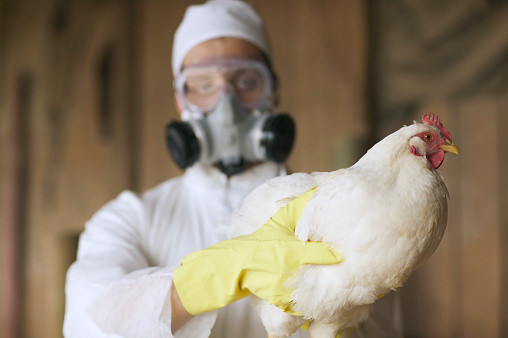
The Health Ministry of Brazil reported that the country is looking into a possible case of avian influenza A (H5N1) in a resident of the state of Espirito Santo in the country's southeast.
This week, the state saw the first-ever confirmed cases of wild birds.
The ministry stated in a statement that a 61-year-old man who works at the park where three wild birds tested positive for Highly Pathogenic Avian Influenza (HPAI) is being watched and isolated after he displayed mild flu symptoms.
It said that samples from the individual and 32 additional park employees were being examined by a reference lab in Espirito Santo, despite the fact that there had never been any proven cases of influenza A reported in the nation.
Although H5N1 can infect humans, occurrences are still uncommon, and global health officials have stated that there is little risk to people.
Brazil, the biggest exporter of chicken in the world, is taking a more cautious approach following the discovery of the H5N1 subtype in wild birds.
Nearly $10 billion in chicken exports would be at stake if the highly pathogenic virus subtype were to spread to the nation's commercial flock because importing nations would apply trade restrictions.
Chicken prices could follow suit if the disease spreads to Brazil's commercial flocks of poultry.
As the nation in South America filled the supply gap created by other producers who were afflicted with the flu, exports from that region increased to record levels.
Because the bird flu cases were found in migratory birds, exports of chicken should not currently be halted, according to the World Organisation for Animal Health.
Additionally, buyers of the country's poultry shipments are not expected to impose cargo bans. According to ABPA, local supply should also not vary.
Yet Carlos Favaro, the minister of agriculture for Brazil, issued a state of emergency alert to strengthen the mobilization of poultry farmers and the government veterinary service.
© 2025 Latin Times. All rights reserved. Do not reproduce without permission.



